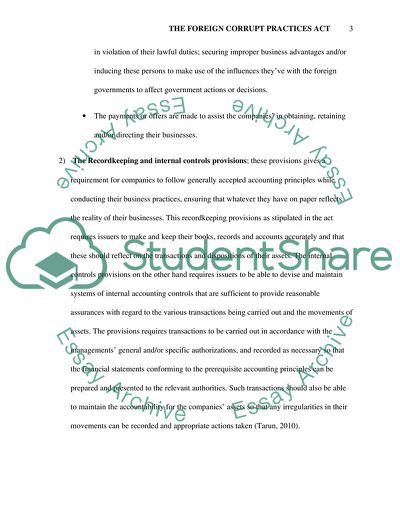Cite this document
(The Foreign Corrupt Practices Act Essay Example | Topics and Well Written Essays - 1500 words - 7, n.d.)
The Foreign Corrupt Practices Act Essay Example | Topics and Well Written Essays - 1500 words - 7. https://studentshare.org/law/1881793-final-project
The Foreign Corrupt Practices Act Essay Example | Topics and Well Written Essays - 1500 words - 7. https://studentshare.org/law/1881793-final-project
(The Foreign Corrupt Practices Act Essay Example | Topics and Well Written Essays - 1500 Words - 7)
The Foreign Corrupt Practices Act Essay Example | Topics and Well Written Essays - 1500 Words - 7. https://studentshare.org/law/1881793-final-project.
The Foreign Corrupt Practices Act Essay Example | Topics and Well Written Essays - 1500 Words - 7. https://studentshare.org/law/1881793-final-project.
“The Foreign Corrupt Practices Act Essay Example | Topics and Well Written Essays - 1500 Words - 7”. https://studentshare.org/law/1881793-final-project.


